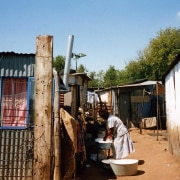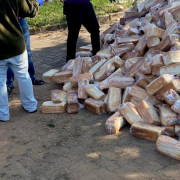|
Getting your Trinity Audio player ready...
|
Guest contributor
I have to firstly applaud each and every person who stays at home during the lockdown, I am sure it’s not easy especially for people who enjoy going out. You are doing yourself, your family and the country good.
We have the will to do what’s right for us, for our families and for our communities. But what I find hard to understand is how some people could be so selfish and actually do what we were told not to do – go onto common property. Why are those people are choosing not to abide by the rules – which calls for a self-quarantine?
I am writing this piece looking at my own surrounding, a township which is less than an hour away from the country’s economic hub, Johannesburg. For a township with over 450 000 people (according to the 2011 Stats SA population data), you would expect people to be more aware of the decisions they make and the effect on others. What is worse is that Gauteng has been the epicentre of Covid-19, with about 633 cases confirmed on Monday, 31 March, by the health department.
A large number of the people here at Tembisa keep with their usual day-to-day business amid the rising numbers of confirmed cases.
I wondered, just before the lockdown was announced by President Cyril Ramaphosa, what it would take for us to behave in a certain way that would save all our lives. I have not been privy to witnessing how other people in parts of the country are behaving. But media reports suggest many people, in the townships, and some parts of the rural areas, have not heeded the call.
This large number of people have the potential of spreading the virus but someone to whom I was speaking said the government should take the blame as it has done little to make sure people are being educated in their home language.
People were behaving this way, he believes, because the messages are mostly communicated in a language that they don’t understand.
Communication could be the government’s weakness during the outbreak, which would lead to people failing to adhere to the laws which are made, but is it not our responsibility to at least try to do our part?
Some people who live in informal settlements and townships can’t be blamed entirely for breaking the rules or claiming not to know what is happening as they have no access to electricity, a service which enables us to understand what is happening in the world.
People who, for whatever reason, don’t have a television or a smartphone and access to data won’t have the same opportunity of getting news and information as those who have those facilities.
Business actually has a conscience
I have seen how, in the wake of the pandemic, businesspeople seem to somehow have miraculously found their conscience. More are opening their wallets in the fight against the spread of the virus than the fight against poverty and making sure that land is bought for landless South Africans. Yes, they have started these businesses and created millions of jobs but the fact remains South Africa is still an unequal country, where too many have no access to land and economic opportunities that will take them out of poverty.
With billions donated by the likes of Patrice Motsepe, Johann Rupert, and the Oppenheimer family, and businesses like Naspers since the lockdown and establishment of the Solidarity Fund was announced, it shows how businesses can actually play a part in building the world.
Businesspeople can donate large sums of monies to such causes if they genuinely want to help in building a better world for all. It pains me to see how some businesses, regardless of their turnover, are turning their backs on people who support them.
It is not just the government’s responsibility to make sure that the citizen of a country gets proper medication or quality water; I believe that businesspeople have a role to play.
The most shocking and inhumane thing I have witnessed is seeing businesses capitalise on a situation like the Covid-19 outbreak by inflating products of essential goods and products, and seeing other companies only ‘helping out’ because they stand to benefit from a tax deduction, marketing, and PR and benefits.
Government’s response or lack of response in disastrous situations
I have seen how the South African government and many others have acted promptly to the pandemic, putting measures in place that will see people largely confined to in their homes. But what surprised me the most is the government’s commitment to see large amounts of monies being made available to help curb the spread of the virus.
Monies have been made available to owners of small businesses who have, in the past, complained about being owed millions of rands for services they have rendered to government departments.
One should not be made to feel bad for being hard on government or questioning its political will or its sudden decisiveness in responding to such situations. The government has been known to be slow or non-responsive in dealing with promises they made to the electorate, who are mostly the poor, but with the tragedy called Covid-19, we have seen a government in action.
When would the government have taken upon itself to heed the call to move the homeless people to places of safety? Should we thank the pandemic for the resources that have been made available?
It is such situations as the Covid-19 pandemic that show us what is really important to government and businesses. Is it profit or lives?
Image from Wikimedia Commons








